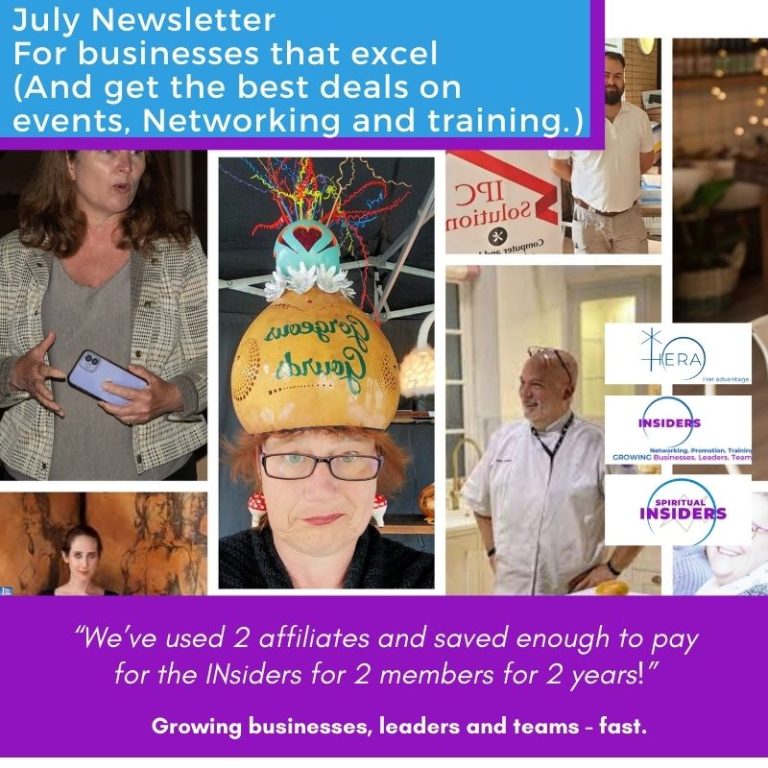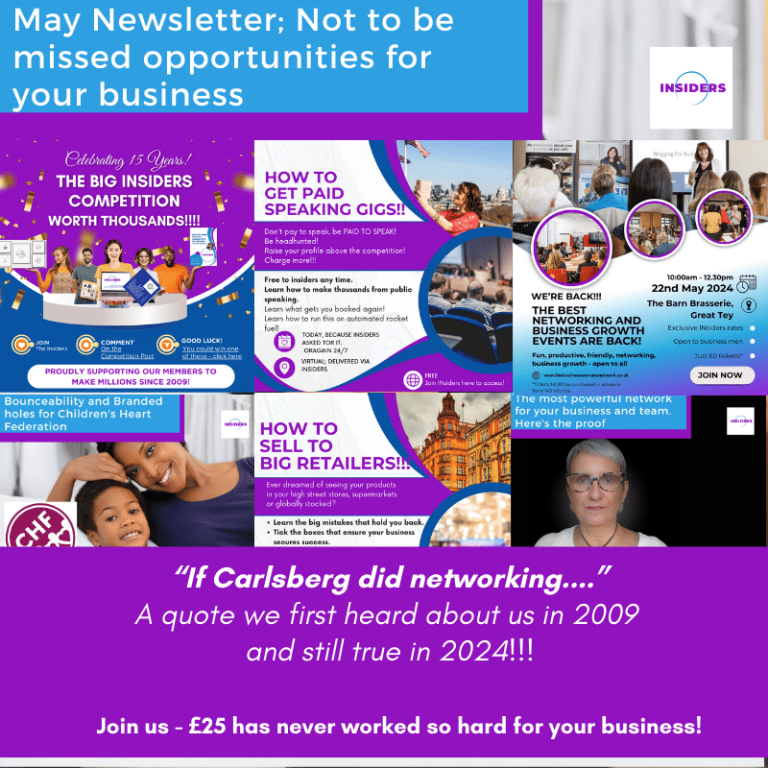Menopause and business success
When member of the Insiders, Melissa Neisler Dickinson went through the menopause and sought solutions to make it easier, little did she realise it would start a new business that is growing fast. The hospitality manager and owner of the Suffolk Wedding Show said: “Without my own menopause experience, I would never have considered starting a company that, will support many other women.”
We’ve known Melissa for many years with Melissa helping us host over 40+ networking and business growth events, so to discover this innovative approach to this stage in a woman’s life was refreshing and something we really wanted to support.
In recent months we’ve been inundated with people wanting their products and services in front of our members for the menopause. The governments decision that the menopause is not a protected characteristic in the Equality Act has possibly not helped to ensure women are accessing reputable advice and safe products and services.
With Melissa’s own experience, she has invested heavily to ensure her products are exceptional and here we explore the menopause in the work place and what we can all benefit from knowing about the menopause in the workplace.
For all of our male Insiders and readers it is a powerful read. As we’ve learnt through history, we only really grow and change when all people appreciate the need to achieve that.
It is worrying isn’t it that while the menopause is a natural biological process that affects all women in various ways and degrees of severity. There is still a lot to be done to make the support, advice and knowledge readily available to ensure business doesn’t suffer (as well as the happiness of women!)
According to the Office for National Statistics, there are approximately 15 million women aged 45-64 in the UK labour force in 2021, many of whom could be experiencing menopause or perimenopause. It can have a significant impact on women’s well-being and work performance.
Some common symptoms include hot flashes, night sweats, fatigue, mood swings, cognitive changes, and sleep disturbances.
Shockingly in the west a woman can be perceived as less capable as she ages, whereas a man can be perceived as more capable and knowledgeable. By challenging outdated beliefs and helping women (and men) appreciate the impact of the menopause in the workplace things can improve greatly.
With that in mind we are excited to welcome on board our latest affiliate and sponsor Menopause Vitamin Company. If you work with Melissa and her growing team, please do say Hello and where you found her amazing products.
A study by the Chartered Institute of Personnel and Development (CIPD) found that 59% of women experiencing menopause symptoms reported that it had a negative impact on their work.
The same study showed that 31% of women experiencing menopause symptoms had considered reducing their working hours, and 14% had considered leaving their jobs altogether due to the impact of menopause symptoms.
This combined with a lack of awareness and understanding about menopause in the workplace can have devastating effects. And not just on the woman. Profits, innovation and wellness at work are all impacted upon. Especially when many women feel reluctant to discuss their symptoms with employers or colleagues due to stigma or embarrassment. According to a CIPD study, only 27% of organisations in the UK had a menopause policy or guidelines in place to support women experiencing menopause symptoms. More shockingly only 5% of organisations provided line manager training on menopause, and less than 1% provided specific training for HR professionals.
Things are changing!
The good news is that increasingly, businesses in the UK are recognising the importance of supporting women through the menopause. Some companies have introduced policies, guidance, and resources to address the specific needs of menopausal employees.
And the good news for our businesses is this opens up many new opportunities as we often discuss on the Insiders with our members.
What can help?
Flexible working arrangements, such as flexible hours or remote working options, can help women manage symptoms and maintain work-life balance during the menopausal transition. As can understanding on stress and it’s role in the menopause.
Raising awareness to unchallenged outdated biases can help and businesses can help their teams access information, create their own awareness campaigns, and training for managers and employees can contribute to creating a supportive and inclusive working environment for menopausal women. This is why I’ve personally seen a rise in the interest in mindset and belief coaching in the workplace as people challenge unconscious bias to women as they age.
Think of the characters women play as they age? (And how men as they age are still empowered to play the hero well into their 70’S!) One study showed that as women age their faces become wider, and wider faces are perceived as more volatile and angry. The huge gap in beliefs around aging for women in the Western world is currently playing it’s own role in helping women speak up and men understand it’s impact.
https://menopausevitamincompany.co.uk/?ref=Thebusinesswomansnetwork




